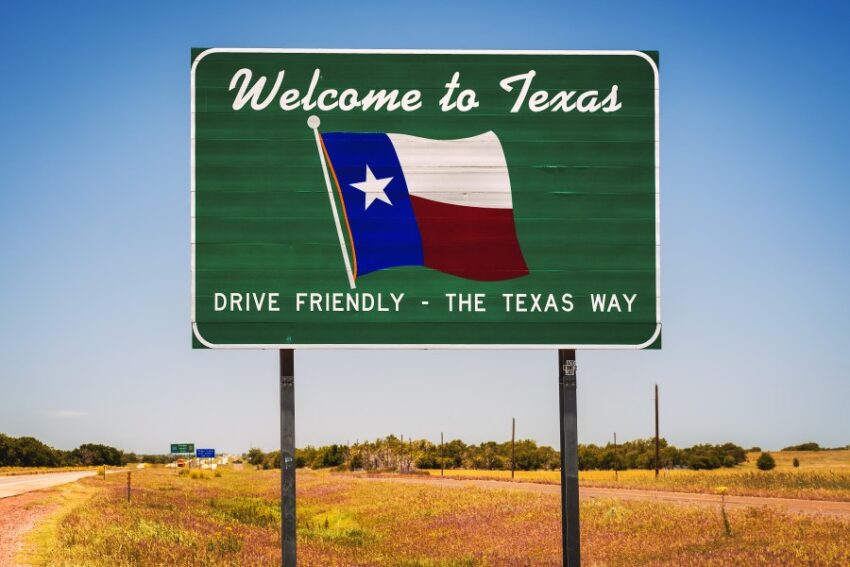(KAMR/KCIT) — The state of Texas is the second-largest state by both area and population, with at least seven eco-regions and the most counties out of any other. With so many people and places, the Lone Star State has also developed a set of distinct dialects.
While Texas slang can sometimes be grouped together with the speaking habits of the larger American south, there are multiple words and phrases that are said or defined differently than anywhere else.
“All hat, no cattle”
Texans are often associated with confidence and can-do bravado, alongside their state pride, but there are still plenty of phrases to refer to a Texan with an ego not even a ten-gallon hat can hold.
Among those phrases are saying someone is “all hat, no cattle,” similar to someone being, “all broth and no beans,” or someone who acts like they “can strut sittin’ down.”
For the unfamiliar, the phrase is a particularly Texan stand-in for others like “all bark and no bite.”
“Bless your heart”
While “Bless your heart,” is a phrase familiar to many southerners, the context and inflection in a Texas conversation can mean the difference between a friendly phrase and a barb.
“Bless your heart,” can mean an expression of pity, like “I’m sorry to hear that.” However, half the time it’s used as a condescending, two-faced sort of insult. For example, if a Texan meets someone rude, boastful, or otherwise entirely out of touch, that person might have a slow head shake and a “Bless your heart,” coming their way.
“Coke”
Although Texans tend to say “coke,” they don’t always mean a Coca-Cola.
“Coke” is often used to refer to any carbonated beverage. If someone asks for a “coke” in Texas, it’s likely they’ll next be asked, “What kind?”
“Corn-fed”
This particular phrase doesn’t necessarily have to do with corn.
People in Texas may refer to “corn-eatin'” horses or “corn-fed” boys, which tends to mean that the person or critter in question is big. Tall, buff, broad-shouldered men are often referred to in this way.
“Fixin’ to”
“Fixin’ to” is often pronounced as “Fixin’ tuh” in Texas conversations, and means someone is about to do something. Texans may say they are “fixin’ to” go to the store, for example.
Newcomers should also be careful not to mistake “fixin’ to,” for “fixins,” which refers to side dishes or condiments – such as someone asking for a burger “with all the fixins.”
“Jeetjet?”
A common Texan greeting, alongside “Howdy,” is “Jeetjet?”
Pronounced “Jeet-jet,” the question is often given to friends or family members, meaning “Did you eat yet?” or “Have you eaten yet?”
This phrase may be shortly followed by “Squeat,” pronounced “Skweet” – for “Let’s go eat.”
“Might could”
The phrase “might could” in a Texas conversation is one of those slang terms that are actually longer than the original.
When a Texan says “I might could get that done,” or “I might could do it,” the phrase is a stand-in for “maybe.”
“Panhandle rain”
Texas locals tend to claim the state has four seasons: drought, flood, blizzard, and twister. Each of these can change at the drop of the hat, and a large state like Texas with so many varying environments means that it has dramatic, sometimes unforgiving, weather.
Naturally, this means the weather is a popular topic of Texas conversation and a popular subject for slang.
“Panhandle rain,” for example, refers to a dust storm — a common phenomenon in the Texas Panhandle and the high, flat plains regions of the northwest.
Other common phrases referring to the weather include:
“It’s so dry I’m spittin’ cotton,” — referring to dry conditions
“That’s a real toad-strangler,” — referring to a thunderstorm
“Hotter’n a honeymoon hotel,” — referring to hot weather
“Cold as a cast-iron commode,” — referring to cold weather
“The wind’s blowing like perfume through a prom,” — referring to gusty weather
“Tank”
Although a tank may seem pretty straightforward, referring to the armored vehicle, a Texas “tank” has more to do with its home-grown cattle ranchers.
A “tank” is known in Texas as a pond, usually man-made, used for watering cattle. Tanks are also used for fishing and occasionally swimming – though perhaps not wisely used for all three at the same time.
“That’s a whole ‘nuther can o’ worms”
Similar to “might could,” the Texas use of “whole ‘nuther,” – pronounced “hole-nuther” – is in itself a whole ‘nuther instance of a slang term being longer than the word it replaces.
Texan conversationalists often use “whole ‘nuther” to replace “another,” referring with the phrase “That’s a whole ‘nuther can o’ worms,” to a tangent or something entirely different from the topic at hand. Hearing that in conversation may be a good cue that someone needs to get back to the main subject.
Other common Texas phrases:
“Keep your saddle oiled and your gun greased,” — Be prepared
“Lick that calf again?” — Repeat that?
“Not my barn, not my cattle” or “Skin your own buffalo” — Mind your own business
“Why shear a pig?” — Don’t waste time and effort
“Don’t squat on your spurs” — Don’t act without thinking
“Lie down with dogs and get up with fleas” — Actions, including unwise and impulsive ones, have consequences
“Any mule’s tail can catch burrs” — Hardships can, and will, touch everybody
At the end of the day, newcomers to the Lone Star State shouldn’t be too worried about keeping up with every part of the lingo. The most important thing is to bring a “Howdy,” and a solid handshake, and meet southern hospitality with a friendly attitude. With that done, most Texans will be happy to show how to two-step through a chat.
Read: Read More




